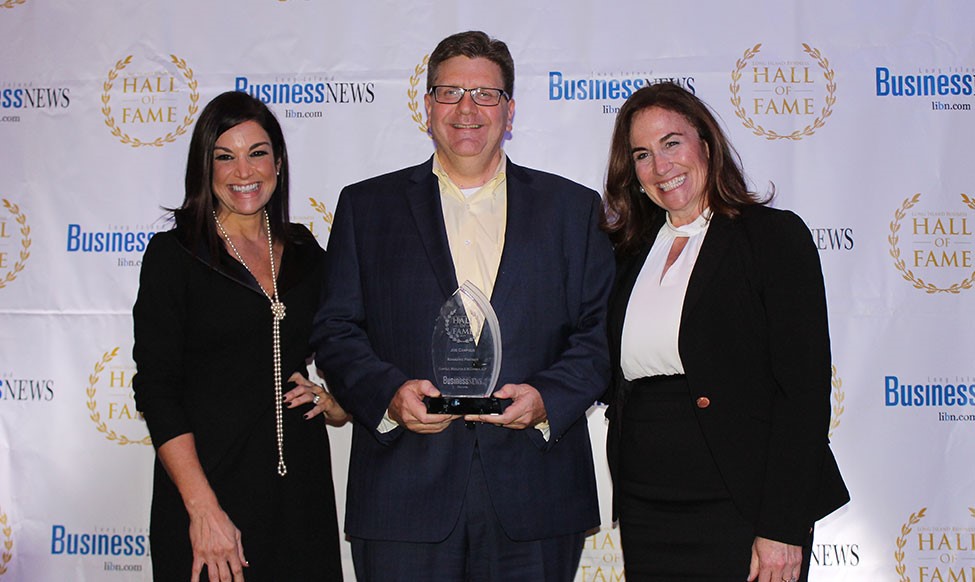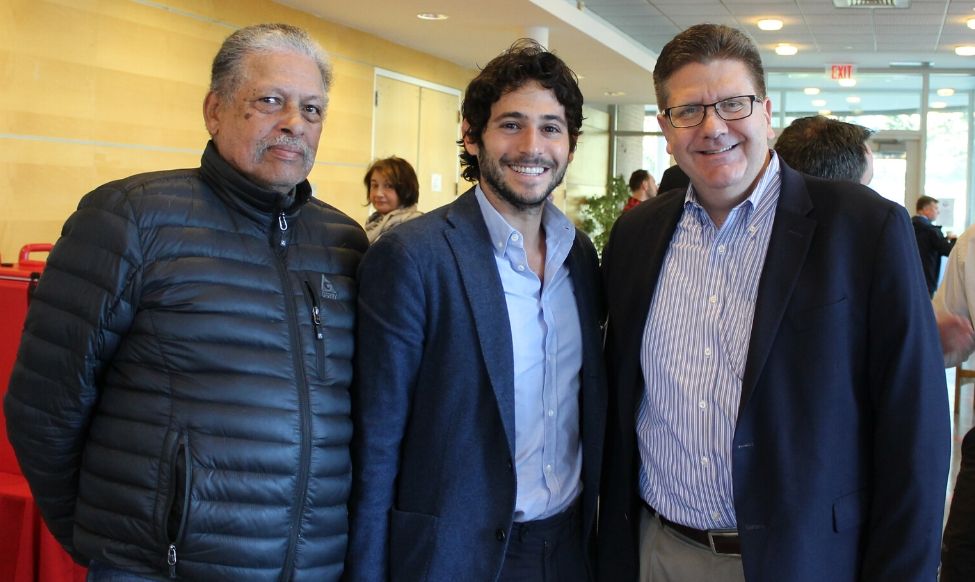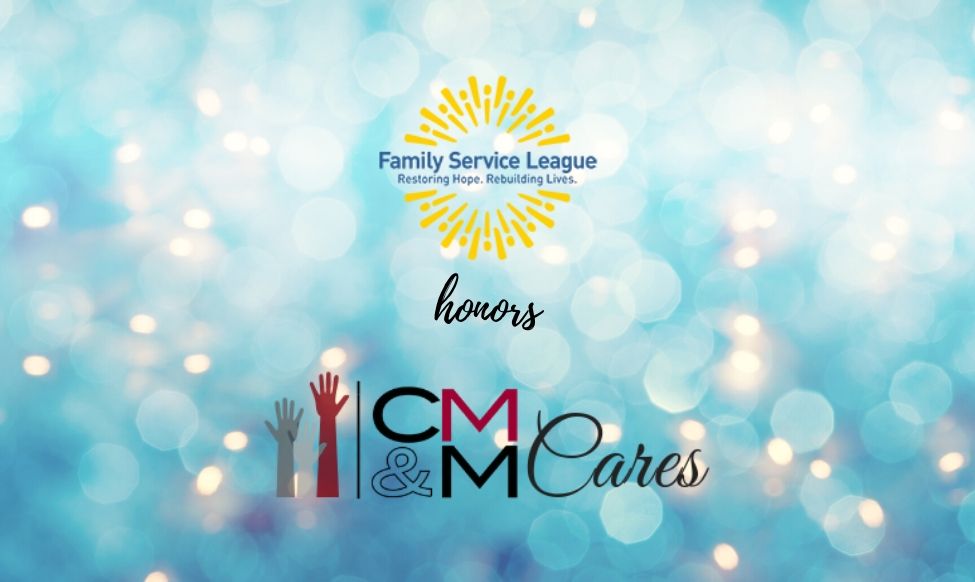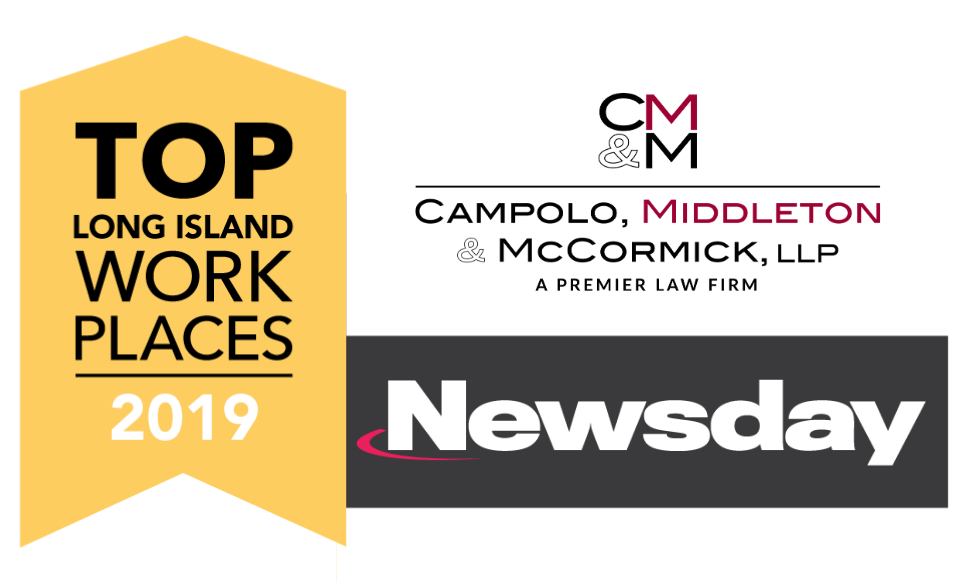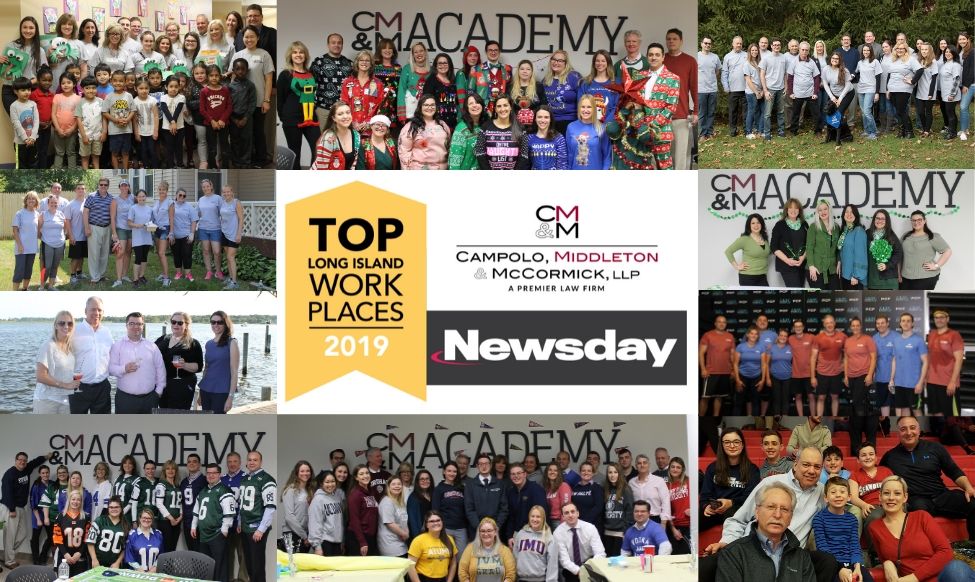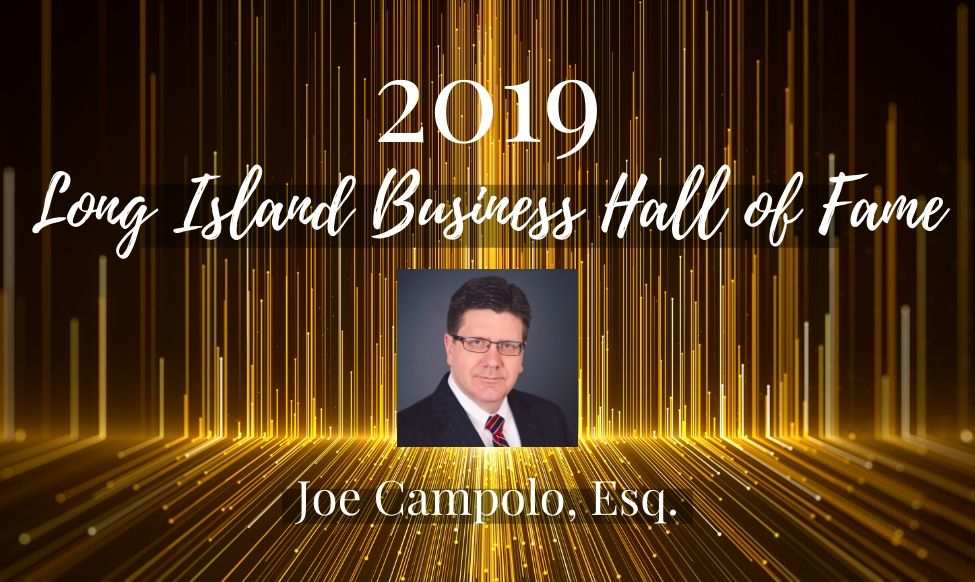CMM Managing Partner Joe Campolo was inducted into the Long Island Business Hall of Fame on November 7, 2019. This prestigious awards program honors the most influential leaders in the business community. Induction into the Hall of Fame is a high honor reserved for Long Island leaders who demonstrate a commitment to excellence. Below are the remarks Joe delivered at the induction ceremony. Read the full press release here.
First and foremost, I want to congratulate all my fellow inductees. Quite frankly, I was very surprised to be included with this group and was certain that a mistake had been made. Once I confirmed that it was not a mistake, that triggered a lot of internal struggle as to what would be my message tonight as I received this award. I of course thank my entire team at CMM, and my dear friend and co-inductee Terri Alessi-Miceli, collectively a remarkable group of professionals who inspire me every day to be my best. I would also be remiss if I didn’t thank my wife, Alyson – as difficult as I may seem at times to the folks in the business community, that is nothing compared to how difficult I probably seem to her – yet she remains my rock and inspiration and makes sure that my world is full of love and laughter.
Since notice of this award was made public, the biggest question I’ve received is “What was the criteria that was used to select the inductees?” Great question to which there doesn’t seem to be any objective answer. I don’t have the largest law firm on Long Island – that distinction goes to my co-inductee Bill Savino. I also don’t lead an organization with a large balance sheet – that distinction would go to my friends and co-inductees Jim and Bob Coughlan from Tritec. And I am clearly not the best-looking male executive on Long Island – I defer that distinction to my good friend and co-inductee Rich Humann. Having removed these categories from consideration, I desperately searched for what could possibly have been the reasons for my inclusion here tonight. And what I came up with are the following four factors that have shaped my business career.
- A burning desire to grow –
Since leaving home at 17 to enlist in the Marine Corps, my entire life became consumed with a burning desire to grow. Prior to joining the Marines, I found myself in a world where I just didn’t seem to fit in – it was a world of reckless youth where I was surrounded by people who felt doing just enough was good enough and who looked for ways to cheat the system. Burning deep inside of me during this time, however, was the feeling that I simply didn’t belong and because I was so young and immature, I interpreted those feelings as if something was wrong with me for wanting more. Thus, I knew I needed to make a drastic change and decided to join the Marine Corps, a decision that was crucial to me finding myself and marked the beginning of my journey to this podium tonight. As a Marine I was, for the first time, surrounded by high chargers all looking to excel which brought me comfort. It made me realize that I was not weird for wanting to spend my life pushing the limits of my God-given talents to see how far I could go. This desire now permeates every facet of my life and dictates everything I do – from who I spend time with to what I watch and read. If I don’t feel that any of these activities are helping me grow, then I consider them a waste of my time. This may sound harsh to some, but it simply is the product of me accepting who and what I am.
- The courage to be authentic –
For anyone who knows me, they will tell you that I am someone who strives to be fully transparent and authentic. This isn’t a shtick of mine like some performer – it’s how I am able to stay fully immersed and focused on maximizing my growth and development. It would be impossible for me to see a clear path forward unless I am receiving genuine feedback from others, and it’s impossible to receive genuine feedback from others unless what you present to them is genuine. But doing so isn’t easy – it’s actually scary and takes a fair amount of courage to put yourself out there and be fully exposed to others who may be hiding behind the walls of deception. But what I have found is the more discipline I have in remaining authentic, the better the outcome, because no matter where I wind up, I never lose myself along the way.
- Having boundless energy to persevere –
Perseverance has been a cornerstone of my career, as I have been blessed with an extremely strong work ethic that was instilled in me by my grandmother and my father. This ability to get up every day and, notwithstanding the circumstances, continue to advance the ball down the field takes an enormous amount of focus and energy. Maintaining this discipline is even more difficult because we live in the most prosperous country in the world – thus one could just do “enough” and still do well. However, the ability to persevere through boredom and adversity until one achieves their goals is what turns good business leaders into great ones.
Understanding that some balance is needed, the formula is work hard/play hard, and I do take opportunities to shut down and recharge my energies. And while I certainly have a lot of fun during those down times, I never lose sight of the fact that they are temporary fuel stations that provide me the energy I need to continue down my path.
- A promise to always do my best –
I have made a promise to myself that I will always do my best and, if I fall short, I will not make excuses but instead always strive to do better. This commitment is critical because, as humans, mistakes and failures are inevitable. And unless I am confident that I’ve done my best, such failures will lead me down a dark road of self-doubt and self-loathing. Knowing that I have done my best, however, gives me closure and shifts my internal dialogue from one of inadequacy to one of acceptance that the particular opportunity I was seeking wasn’t right for me or didn’t come at the right time. As a business leader, the most important thing to instill in my team members is an expectation that everybody will do their best and an understanding that it sometimes simply won’t work out. This builds the confidence that is necessary for business people to be able to grow and to take risks.
In closing, I would like again to congratulate all of my fellow inductees. I am proud to be sharing this spotlight with all of you tonight and look forward to us all working together to continue to make Long Island the greatest place on earth.

